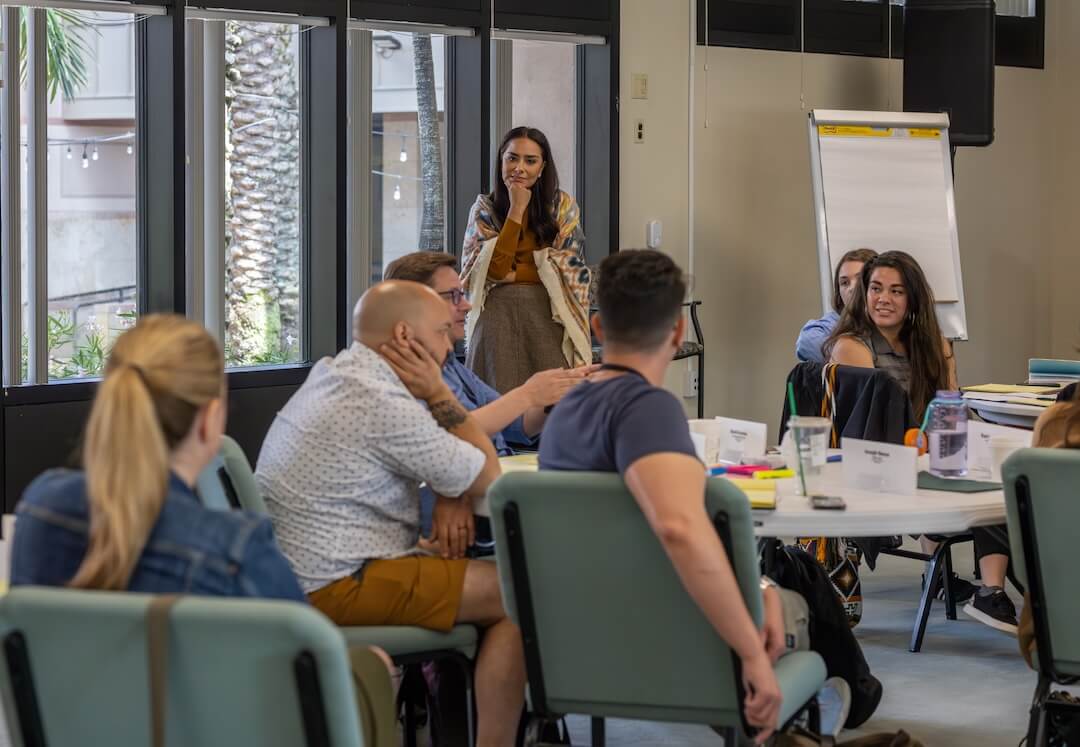I suppose every city has one or two iconic TV news anchors who can truthfully be labeled “beloved.” Dan Miller was one of those people at WSMV-TV in Nashville, Tenn., a city that is generally unimpressed with celebrity-like figures.
Wednesday, Miller died at age 67 of a heart attack. He was doing something he loved — walking through his old neighborhood in Augusta, Ga., with two of his dearest friends, WSMV-TV reporter Terry Bulger and sports anchor Rudy Kalis. The three of them were on their way to the Masters.
I struggle to tell those who didn’t know Miller what he meant to Nashville. You may remember him as the comedic sidekick to Pat Sajak on the short-lived “Pat Sajak Show.” But that role didn’t capture who he was.
A valuable journalist, mentor and friend
Miller was a guy who connected deeply with his local community, and a journalist who taught me many valuable lessons. In December, he wrote a column about how much we worry. It was classic Miller. Treat yourself with a look.
Miller believed in privacy and dignity. In February, he and I traded a number of e-mails over a column I wrote about what I considered to be wrong-minded legislators in Kentucky attempting to make 911 calls off-limits to reporters.
This was a hot-button topic for Miller. He said he thought those calls should be off limits. He said he wondered how many people avoided calling 911 because they worried they would end up on the news. We argued a lot about this one over the years, and once in a while he would jab me about stories he thought were self-serving for journalism but of a disservice to the public.
Miller was obsessed with accuracy. He demanded clear writing. Instead of planning questions ahead of time for reporters in the field, he would listen to the story and then ask questions that he thought the public would ask.
He wrote about work and life on his blog, which went far beyond most news anchor blogs. There were some phrases that especially irritated him, such as the following:
- “To make a long story short” *(When it’s too late for that)
- “No problem” *(After asking your waiter for something)
- “My bad” *(Hey, this ‘bad’ belongs to me)
- “Went missing” *(The opposite of “came found”)
- “A drug deal gone bad” *(Probably a bad idea all along)
- “Ran him over” *(Why not just ‘ran over him’?)
- “Stay on message” *(New political jargon)
- “Let’s touch base” *(Are we gonna advance on a fly ball?)
- “From the get go” *(Sounds like instructions for a horse)
- “Summering in Spain” *(Like, I’ll be nighting in my bed)
As a young reporter, I looked up to Miller. In 1984, when I appeared for the first time on set with Miller for a story, I called my mother and reminded her to watch. It was beyond my imagination that I could be on the same set with Miller. When I called my mom after the show, she kept talking about how much she liked Miller, and didn’t say a word about how she thought I did.
Miller eventually left Nashville for Los Angeles. It was not a great fit, but he had to get the allure of the big city out of his system. A half-dozen or so years later, we lured him back.
When I became the news director at WSMV-TV, Miller would sometimes complain about how many weather alerts we ran and how often we interrupted the shows people were watching.
“Can’t we just let them enjoy a summer lightning storm?” he would say. It made me remember how much I loved watching those storms when I was a boy, back before the “Super Duper Doppler” radars tracked storms’ movement inch-by-inch.
A modest man who cared for common people
Miller was so private he cut his own hair. He drove junky old cars because he didn’t want people to think he was too showy.
The last we talked, he was driving an 8-year-old car. He also recently patched his own garage roof. We would laugh every time he was named “Best Dressed” in Nashville because some of us knew he sometimes bought his ties at Target.
Miller reached out to connect himself, and the station, with common people. He ate at everyday Nashville restaurants known as “meat and threes.” He raved about places with names like Swett’s, Sylvan Park, Rotier’s and Pie Wagon.
When celebrities in Nashville wanted to go public about some awful event in their lives, they often turned to Miller’s “Miller & Company” show to spill their guts. There, they would be treated with respect in a quiet conversation that preserved dignity.
Nearly three decades ago during the Christmas season,”Miller & Company” decided to broadcast, for a half hour, a crackling fire in a fireplace. No talk, just a relaxing fire. Again, it was classic Miller.
When I got a call early Thursday morning from Demetria Kalodimos, Miller’s longtime co-anchor and dear friend, she reminded me how much Miller adored his hometown of Augusta. “He talked about his old neighborhood all the time,” Kalodimos said between her quiet sobs.
To die there, in his hometown surrounded by two of his dear friends, was a nearly poetic way for such a sweet man to die. If it had been somebody else’s story, Miller would have loved the subtly of it all.
WSMV-TV put together a tribute to Miller, which you can watch here. There is also a condolences page on the station’s Web site.






